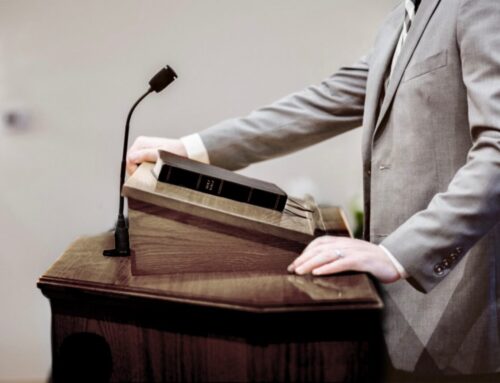William Bridge (1600-1670)
Lacking Assurance?
By Ian Hamilton, Editor
Reprinted from The Banner of Truth Magazine #703, April 2022
Some years ago I was asked by a good friend, “Why do you like the Puritans so much?” My friend had heard me (too often) quote from John Owen and other like-minded Puritan pastor-theologians. If I remember rightly, I said, “Because they take me into another world where the air is clear.” I didn’t mean that they helped me to escape from this present world. I meant that their teaching helped me to live in this present world. The God-centeredness and Christ-exalting content of their preaching and teaching helped to recalibrate my mind and heart amidst the darkness, confusion, and absurdity of the age we live in. William Bridge’s classic work, A Lifting up for the Downcast, is a case in point.
Bridge (1600-1670) was a non-conformist pastor who understood the struggles many Christians have with assurance. He knew that not all Christians enjoyed “full assurance of faith” and he wanted to help those who, for a variety of reasons, did not enjoy the sweetness of gospel assurance. In a striking paragraph, Bridge anticipates a believer saying, “I know that I must be humbled for my sin before I can enjoy peace within,” Bridge does not disagree, but replies,
In all your humiliation, carry Christ along with you. When you go to mourn for sin, begin aloft with Christ: and do not always think to begin below with sin, and so come up to Christ: but begin aloft with Christ, and so by your humiliation, fall down upon sin. You say, Oh, but I would first be humbled before I go to Christ. But I pray tell me, can you be humbled and not see your sin? and where can you have such a prospect of sin as in the death of Christ? is there anything in the world that can shew you the misery, ugliness, and damning nature of sin, as the death of Christ? If you begin with Christ, then you will certainly come down to your sin and be humbled for it: but if you begin with sin, you will not certainly come up to Christ…do not begin always with sin to go up to Christ, but rather begin at Christ, and so fall down upon sin.
Often the Puritans are portrayed as self-flagellating miseries who were obsessed with sin. This wearisome caricature has been debunked time and time again, but ignorance rarely admits of correction. The truth is that the Puritans were obsessed with Jesus Christ. Yes, they exposed sin for the multi-headed hydra it is — because that is what the Bible does. But the Puritans were in their element preaching Christ and pointing men and women to him with a passion that is unsettling and convicting. This is what William Bridge does in his book on assurance, as the paragraph above shows. He wants his readers to know and feel the sinfulness of sin, but they will only really, that is truly, know and feel that in company with Christ.
Bridge is especially addressing Christians, men and women who have come to Christ, convicted before God of their sin and their need of his mercy and promised grace in Christ. The remedy for the defilement and shame of our sin is found alone in the Lord Jesus Christ, in the fullness and perfection of his sin-atoning, propitiatory sacrifice as our covenant Head. This is why we must always begin with him. To begin with yourself will only depress you. Beginning with Christ will do two things: It will impress on you the exceeding sinfulness of sin, it is against God, the God who spared not his only begotten Son for us. Second, it will ever remind you that God is rich in mercy and abounding in steadfast love to sinners. Thomas Goodwin (somewhere!) makes this striking comment, “If thou wouldst know what sin is, go to Mount Calvary,” Goodwin is not in any way diminishing the fundamental role of God’s law in exposing sin and convicting us of the reality and awfulness of our sin. What he is saying, is that Calvary, not Sinai, is where we see the true, gory, ghastly, wickedness of sin in all its unvarnished vileness. Is that not so?
The letter of the Hebrews is a pastoral masterpiece. As the writer heads towards his conclusion, he issues an appeal, “let us run with endurance the race that is set before us, looking (ἀφορῶντες, looking away) to Jesus, the founder and perfected of our faith.” Notice the thrust of the verb, “looking away to Jesus.” The temptation to look to ourselves is ever present. There is a right looking in to ourselves, but never as if we had become disunited from our gracious Saviour.
The hymn-writer Edward Mote beautifully and simply makes this point:
My hope is built on nothing less
than Jesus’ blood and righteousness;
I dare not trust the sweetest frame,
but wholly lean on Jesus’ name.
Refrain:
On Christ, the solid Rock, I stand:
all other ground is sinking sand,
all other ground is sinking sand.
When darkness veils his lovely face,
I rest on his unchanging grace;
in every high and stormy gale,
my anchor holds within the veil. [Refrain]
His oath, his covenant, his blood,
support me in the whelming flood;
when all around my soul gives way,
he then is all my hope and stay. [Refrain]
When he shall come with trumpet sound,
O may I then in him be found:
dressed in his righteousness alone,
faultless to stand before the throne.
Banner of Truth – Christian Publisher of Reformed & Puritan Books







Leave a Reply, please --- thank you.